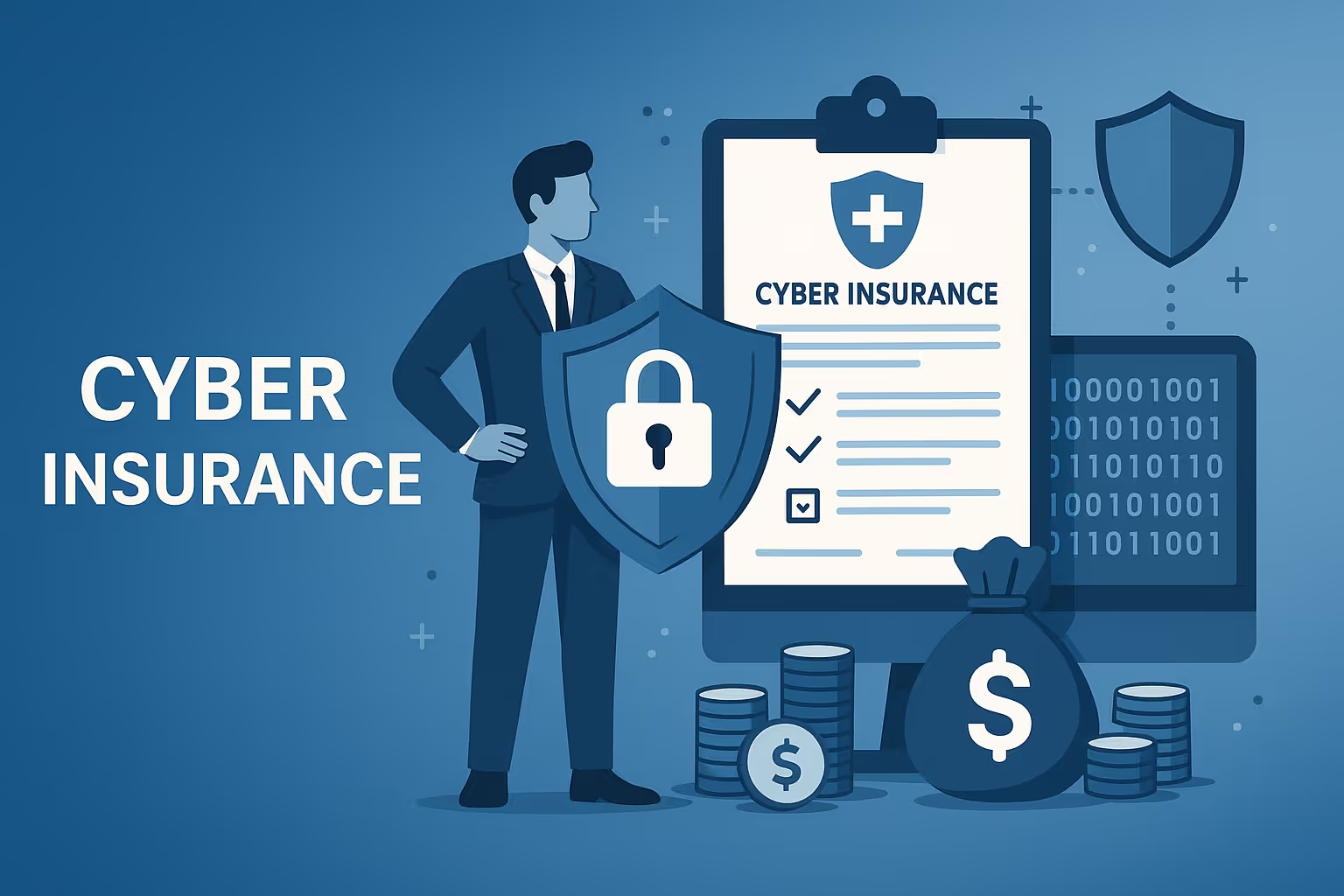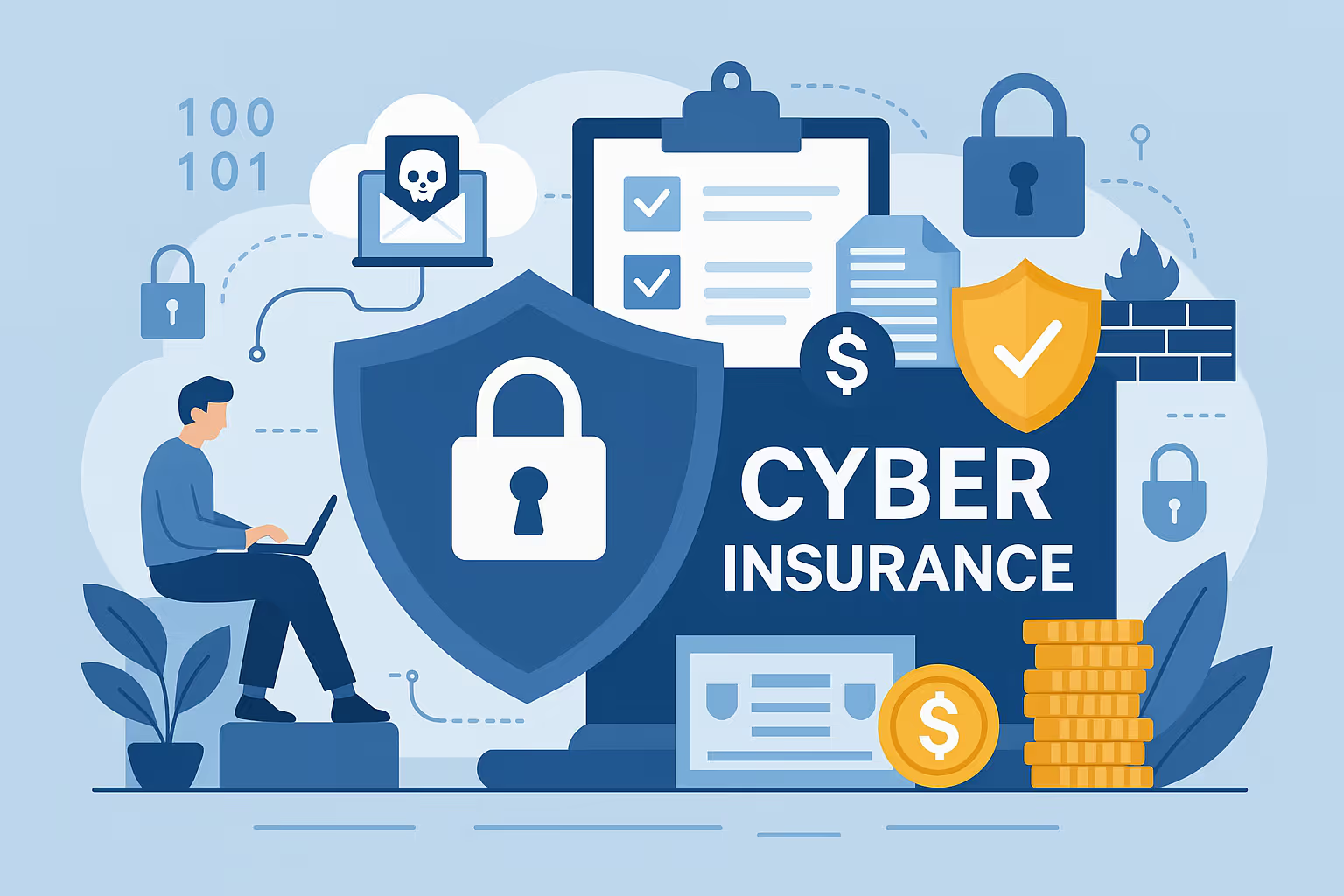
How to get...
For organizations in the Hospitality / Travel / Tourism sector in the United States, understanding how to get cyber insurance for Hospitality / Travel / Tourism is crucial. Below is a detailed, step-by-step breakdown of the process:
Following these detailed steps not only guides you through how to get cyber insurance for Hospitality / Travel / Tourism effectively, but it also ensures you have the necessary documentation and robust security practices in place to protect your organization. This structured approach is key to securing optimal coverage and safeguarding your business against evolving cyber threats.

Who provides...


Why need...
In the Hospitality / Travel / Tourism sector, businesses often handle large volumes of customer data, including personal details and payment information. This makes them prime targets for cyberattacks. Cyber insurance for Hospitality / Travel / Tourism in the United States is essential because it helps mitigate the financial fallout from data breaches, ransomware incidents, and other cybersecurity threats that target sensitive guest information.
Cyber insurance for Hospitality / Travel / Tourism provides a safety net that covers costs associated with incident response, including legal fees, customer notification, credit monitoring, and system forensics. This form of insurance enables businesses to manage risks effectively, ensuring they can recover operationally and financially from cyber incidents while maintaining customer loyalty and trust.
Cyber insurance coverage for Hospitality / Travel / Tourism in this area protects organizations against expenses related to data breaches and privacy violations. This coverage includes:
For U.S. hospitality, travel, and tourism organizations, protecting sensitive guest data is critical. This coverage minimizes financial risk from customer data theft, supports regulatory compliance such as PCI-DSS and HIPAA, and reinforces customer trust by ensuring that any breach is managed swiftly and transparently.
Cyber insurance coverage for Hospitality / Travel / Tourism under Business Interruption safeguards revenue streams when IT systems are compromised. Key inclusions are:
For the hospitality and tourism sector in the U.S., where bookings, reservations, and real-time operations are central, this coverage prevents operational paralysis, ensuring quick recovery and sustained financial security amidst cyber disruptions.
Cyber insurance coverage for Hospitality / Travel / Tourism addressing Cyber Extortion and Ransomware is tailored to mitigate risks from malicious cyber actors. It includes:
In the U.S. hospitality and travel industry where digital bookings and guest information are prized, ransomware attacks can bring operations to a halt. This coverage ensures financial readiness, aids in rapid recovery, and maintains compliance with stringent data protection rules.
Cyber insurance coverage for Hospitality / Travel / Tourism under Regulatory Defense & Fines helps cover legal costs tied to regulatory investigations and penalties. This coverage encompasses:
For U.S. hospitality, travel, and tourism organizations, non-compliance with privacy laws and industry-specific regulations can lead to crippling fines and reputational harm. This coverage not only helps mitigate immediate financial impacts but also supports operational compliance and enhances long-term risk management.
Build Security with OCD Tech That Meets the Standard — and Moves You Forward
Contact Us
Underwriting checks cybersecurity for guest safety. It meets U.S. insurer criteria for hospitality. Strict controls protect data.
Cyber insurance requirements for Hospitality / Travel / Tourism mandate that companies provide detailed cybersecurity documentation, including incident response plans, data handling procedures, and employee training materials. Insurers assess this documentation to understand the organization's security posture and operational resilience. This requirement impacts eligibility by lowering premiums for well-documented risk management practices and speeding up underwriting decisions.
Cyber insurance requirements for Hospitality / Travel / Tourism typically include the implementation of advanced technical controls such as firewalls, intrusion detection systems, and encryption practices. Insurers review these controls to determine how effectively a company is protecting sensitive customer data and operational systems. Effective technical controls can reduce risk exposure, translating into more favorable premiums and streamlined coverage approvals.
Cyber insurance requirements for Hospitality / Travel / Tourism require a thorough disclosure of any past cyber incidents, including data breaches and system compromises. This history assists insurers in quantifying risk exposure and understanding the effectiveness of current incident response strategies. A clean or well-managed incident history can lead to lower premiums, while extensive breach records might necessitate higher costs or additional safeguards.
Cyber insurance requirements for Hospitality / Travel / Tourism emphasize adherence to regulatory mandates such as PCI DSS, HIPAA, or state-specific data privacy laws. Insurers evaluate compliance evidence to ensure that companies are meeting legal obligations, reducing the likelihood of fines and regulatory interventions. Meeting these compliance benchmarks lowers exposure and can favorably affect premium settings and coverage terms.
Cyber insurance requirements for Hospitality / Travel / Tourism include comprehensive risk management strategies that detail third-party vendor assessments and supply chain security practices. Insurers need assurance that not only internal security but also external partnerships are safeguarded against cyber threats. Solid risk management practices result in enhanced underwriting outcomes, lower exposure, and optimized premiums.
Secure Your Business with Expert Cybersecurity & Compliance Today
Contact Us


Differences by State...
Each state’s approach directly affects how organizations evaluate, purchase, and maintain cyber insurance policies. For example, in New York, the intensity of regulatory demands often means that hotels and travel agencies need to invest in advanced cybersecurity measures before even qualifying for the best insurance rates. Conversely, while California may have similar high data protection requirements, the policy structure may be more oriented toward additional consumer privacy liability coverage. In Texas, where regulatory pressures are somewhat less stringent, companies might benefit from a broader range of provider options and competitive pricing, nonetheless, must meet baseline cybersecurity standards to secure coverage.
By understanding these differences, companies can:
This state-by-state strategy is essential for organizations in the Hospitality / Travel / Tourism sector to successfully navigate and leverage cyber insurance in the U.S. market.

Compliance & Frameworks...
In the Hospitality / Travel / Tourism sector, companies must align with several compliance frameworks and regulatory mandates to secure competitive premiums and robust protection under cyber insurance for Hospitality / Travel / Tourism. These requirements play a critical role by shaping underwriting standards and mitigating risk exposure.
These frameworks and regulations not only help companies protect sensitive customer data and operational systems but also have a direct impact on cyber insurance policies. Insurers assess compliance levels when determining underwriting requirements, which in turn affects premiums and overall coverage reliability. For instance, a well-implemented NIST CSF or ISO 27001 program can result in lower premiums by reducing potential vulnerabilities and demonstrating a proactive risk management strategy. Additionally, adherence to state-level mandates like NYDFS and CCPA can increase confidence among insurers, as it reflects compliance with local data protection laws essential in today’s data-driven environment.
By integrating these compliance frameworks into everyday operations, companies in the Hospitality / Travel / Tourism sector not only enhance their security posture but also secure better terms and rates on cyber insurance for Hospitality / Travel / Tourism.

Audit. Security. Assurance.
IT Audit | Cybersecurity | IT Assurance | IT Security Consultants – OCD Tech is a technology consulting firm serving the IT security and consulting needs of businesses in Boston (MA), Braintree (MA) and across New England. We primarily serve Fortune 500 companies including auto dealers, financial institutions, higher education, government contractors, and not-for-profit organizations with SOC 2 reporting, CMMC readiness, IT Security Audits, Penetration Testing and Vulnerability Assessments. We also provide dark web monitoring, DFARS compliance, and IT general controls review.
Contact Info
.svg)
OCD Tech
.svg)
25 BHOP, Suite 407, Braintree MA, 02184
.svg)
844-623-8324
.svg)
https://ocd-tech.com
Follow Us
Videos
Check Out the Latest Videos From OCD Tech!
Services
SOC Reporting Services
– SOC 2 ® Readiness Assessment
– SOC 2 ®
– SOC 3 ®
– SOC for Cybersecurity ®
IT Advisory Services
– IT Vulnerability Assessment
– Penetration Testing
– Privileged Access Management
– Social Engineering
– WISP
– General IT Controls Review
IT Government Compliance Services
– CMMC
– DFARS Compliance
– FTC Safeguards vCISO